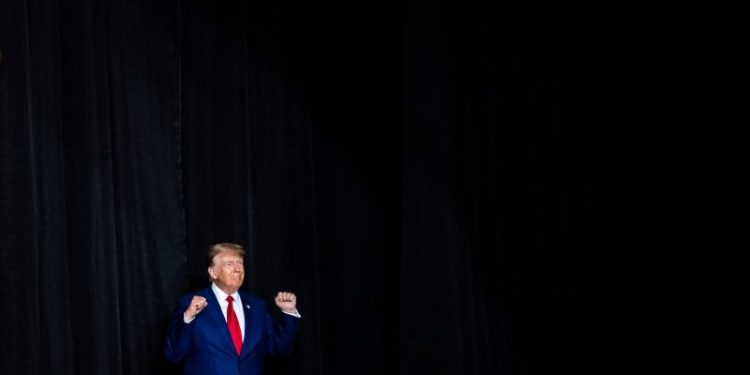President Trump is taking direct legal action against the state of Maine in response to their decision to keep him off the primary ballot. Trump’s campaign has filed a lawsuit against Secretary of State Matt Dunlap, as well as against other Maine officials, on the grounds that removing Trump from the ballot violates the President’s First Amendment rights of political speech.
The Maine Secretary of State had notified the Trump campaign that the petition signatures the Trump campaign had submitted in order to gain access to the ballot contained signatures of individuals who had already previously opted out of the Presidential primary election. Maine’s election policy states that once a voter do not want to participate in the Presidential primary, their name must be removed from the list of registered voters and they cannot legally sign a candidate’s petition to place their name on the ballot. Per Maine election policy, due to the invalid signatures, Trump’s Petition was ineligible for the ballot.
President Trump is arguing that the removal of his name from the ballot was an act of political censorship. Donald Remes, a lawyer on the case, argued that the decision was “partisan, arbitrary, and capricious.” Trump’s campaign claims that the Maine election board violated their fundamental First Amendment rights by censoring the President’s name and speech. The campaign is asking the Court to block their ruling and order dunlap to include Trump’s name on the primary ballot.
The Trump appeal could have significant consequences for the US presidential election. Maine is an important early primary voting state that could play a crucial role in determining who the ultimate Democratic candidate is come November. Trump’s legal battle to get on the ballot is one of many ways the President is attempting to influence the primary election results.
This case could have far-reaching implications for the future of US politics and could be watched closely. If the court finds in favor of Trump’s campaign, it could set a precedent that would make it more difficult for states to take similar action against candidates in the future. On the other hand, if the ruling sides with state officials, it could further solidify existing voting laws and may limit certain kinds of political speech. Ultimately, the court ruling will have a lasting effect on future state elections and how candidates use their speech to gain access to ballots.

















